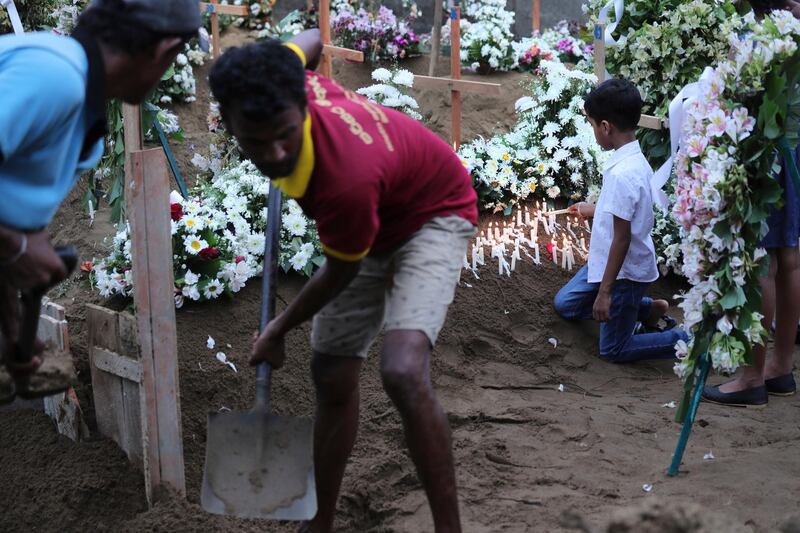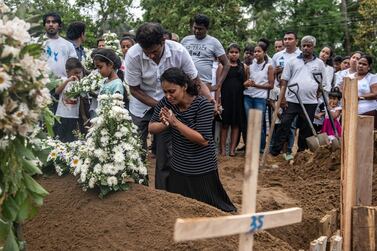Sri Lankan officials have revised the death toll from the Easter Sunday bombings down by about 100, blaming the difficulty in identifying body parts at bomb scenes for the earlier inaccurate number.
It comes as the British Foreign Office says further terror attacks are “very likely” and has advised against all travel to the area.
The new official figure was 253, down from an earlier 359, Deputy Defence Minister Ruwan Wijewardene said on Thursday.
He blamed inaccurate data provided by morgues for the discrepancy.
Anil Jasinghe, the director general of Sri Lanka's health services, said any figure was an estimate: "It could be 250 or 260. I can't exactly say. There are so many body parts and it is difficult to give a precise figure."
The suicide bomb attacks on three churches and four hotels have exposed an intelligence failure, with accusations that warnings had not been acted on and feuds at the top levels of government had undermined security cooperation.
Defence Secretary Hemasiri Fernando resigned over the failure to prevent the attacks, although he insisted on Thursday that the authorities had been acting in response to intelligence tips from India warning of imminent attacks.
"We were working on that. All those agencies were working on that," he said.
Police issued names and photographs of four men and three women wanted in connection with the attacks, as bomb scares and security sweeps kept the country on edge.
Britain has warned against travel to the area and is advising citizens: "Terrorists are very likely to try to carry out attacks in Sri Lanka. Attacks could be indiscriminate, including in places visited by foreigners.
"Security has been stepped up across the island. A State of Emergency and night-time curfew remain in place. The Sri Lankan authorities have made a number of arrests in relation to the attacks, and security operations are ongoing, including controlled explosions of suspicious packages and vehicles, and temporary evacuations of buildings. However, the extent of any continued threat following the 21 April attacks remains unclear."
It comes as Sri Lankan authorities issued a warning that mosques may be targeted by attacks, specifying ‘Aulia’ Mosques connected with the ‘burial sites of Muslim Saints’.
Most of the victims in Sunday's attack were Sri Lankans, although authorities have said at least 38 foreigners were also killed, many tourists sitting to breakfast at top-end hotels when the bombers struck.
They included British, US, Australian, Turkish, Indian, Chinese, Danish, Dutch and Portuguese nationals. About 500 people were wounded.
The Islamic State group has claimed responsibility for the attacks.
Authorities have focused their investigations on international links to two domestic Islamist groups - National Thawheed Jama'ut and Jammiyathul Millathu Ibrahim - they believe carried out the attacks.







